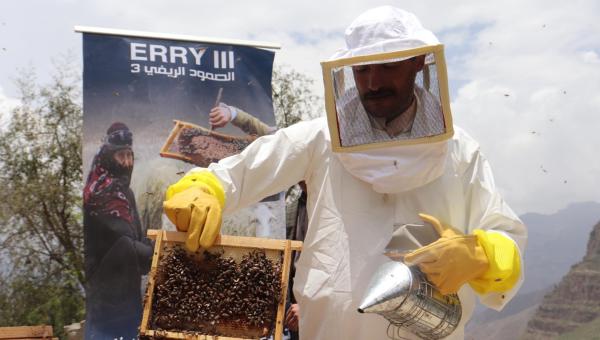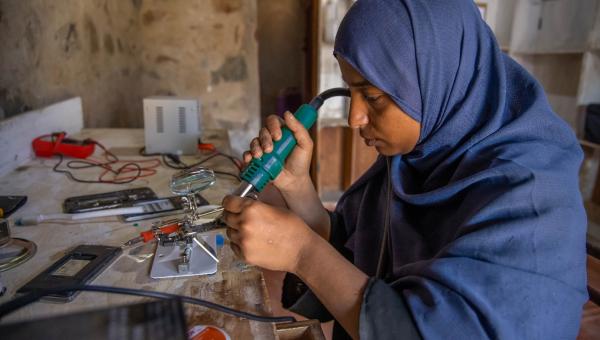Supporting Resilient Livelihoods, Food Security and Climate Adaptation in Yemen, Joint Programme (ERRY III)
Project Summary
Supporting Resilient Livelihoods, Food Security, and Climate Adaptation in Yemen, Joint Programme (ERRY III) is a 3-year programme co-funded by the European Union (EU) and Government of Sweden. The programme will build upon the progress and lessons learned from the previous phases of building community resilience. It will contribute to reducing vulnerabilities and improving levels of community resilience and self-reliance in targeted areas and local governance.
This programme, managed by UNDP, is implemented jointly by FAO, ILO, UNDP, and WFP in seven governorates in Yemen. It aims to address three components: (1) Community conflict reduction and social cohesion; (2) Access to clean energy and climate adaptation; and (3) Livelihoods and food security. It will directly benefit vulnerable beneficiaries and marginalized communities including Internally Displaced People (IDPs), returnees, vulnerable host communities, Muhamasheen, female-headed households, youth, daily labourers, people with disabilities, and elderly community members.
Gender Empowerment
ERRY III JP activities will contribute to gender equality, women’s empowerment, and gender transformative change. It will also contribute to inclusion of women at all stages of implementation, assessment, and monitoring and evaluation – considering the social and cultural barriers rural women face in Yemen. The JP will not only actively seek to address the specific needs and opportunities for women, but care will be taken to ensure that activities provided for women are culturally acceptable and can be accessed by women through thematic areas:
- Promoting economic and social rights and empowering girls and women.
- Increasing access for women to financial services and products, and productive resources.
- Improving access to entrepreneurship opportunities, including social entrepreneurship, and alternative livelihoods and strengthened participation in the green and circular economy.
- Addressing the challenges and harnessing the opportunities offered by the green transition and the digital transformation.
- Increasing women’s participation in – and have improved access to – jobs, entrepreneurship opportunities in the green economy, and the circular economy.
Objectives
The overall objective (goal) is that crisis affected communities are better able to manage local risks and shocks for increased resilience and self-reliance.
Specific Objectives (Outcomes):
Outcome 1: Community institutions are strengthened, and capacity is built around gender sensitive resilience planning, conflict resolution and social cohesion.
Outcome2: Vulnerable communities benefit from equal access to clean energy solutions, environmental protection, and climate adaptive capacity in sustainable manner.
Outcome 3: Sustainable livelihoods of women and men created through improved production, food security and income opportunities.
Related documents
Achievements
- 50 Sub-District Development Committees (SDCs) formed, with 716 members trained in resilience planning, including 47% women.
- 50 Community Resilience Plans (CRP) developed at the sub-district level, providing a roadmap for community development.
- 326 Village Cooperative Councils (VCCs) established or reactivated, strengthening community participation in defining and addressing needs.
- 407 self-help initiatives implemented, empowering communities to address their own challenges.
- 260 community leaders and 612 SDC members, including 325 women, trained as community mediators, enhancing their ability to support mediation and community dialogue.
- 35 conflict scans conducted in 35 sub-districts, providing valuable insights for addressing conflicts effectively.
- 73 community consultants, including 29 women, received Training of Trainers (ToT) in social cohesion, conflict scanning, and mediation.
- 55 community dialogues conducted, leading to peaceful resolution of conflicts in targeted communities.
- 15 solar panel systems installed in public facilities, schools, and local administration offices in Hajjah.
- Over 3,350 beneficiaries, including 38% women, were provided emergency employment through a multiple step approach that supports sustainable livelihoods.
- 29 community assets rehabilitated in eleven districts, facilitating target communities’ access to markets and key services.
- 1200 beneficiaries, including 519 women, increased their knowledge of business development and life skills.

 Locations
Locations





